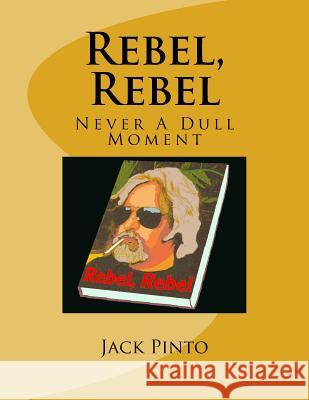topmenu
Wyniki wyszukiwania:
wyszukanych pozycji: 3
 |
Rebel, Rebel: Never A Dull Moment
ISBN: 9781523643080 / Angielski / Miękka / 2016 / 108 str. Termin realizacji zamówienia: ok. 16-18 dni roboczych. When Jack fell into a canal when he was four years old and unable to swim, he tried to move towards the sun, and when that didn't work, he thought, "Never mind, Jack, let it go. Life is a bitch." But then he's rescued, and when he gets home his stepfather beats him up. As usual. Swallowing a jar of red ink before you go to sleep is not the most successful way to commit suicide, Jack finds out, but when it comes down to it, Jack doesn't want to die. He just wants to stop living. At the age of thirteen Jack delivers speeches about war and peace, first to his peers, later on national radio, and...
When Jack fell into a canal when he was four years old and unable to swim, he tried to move towards the sun, and when that didn't work, he thought, "N...
|
cena:
46,80 |
 |
Secrets of the Agency 2
ISBN: 9798224224210 / Angielski / Miękka / 2024 / 166 str. Termin realizacji zamówienia: ok. 16-18 dni roboczych. |
cena:
39,65 |
 |
Secrets of the Agency
ISBN: 9798223722892 / Angielski / Miękka / 2023 / 64 str. Termin realizacji zamówienia: ok. 16-18 dni roboczych. |
cena:
26,42 |










